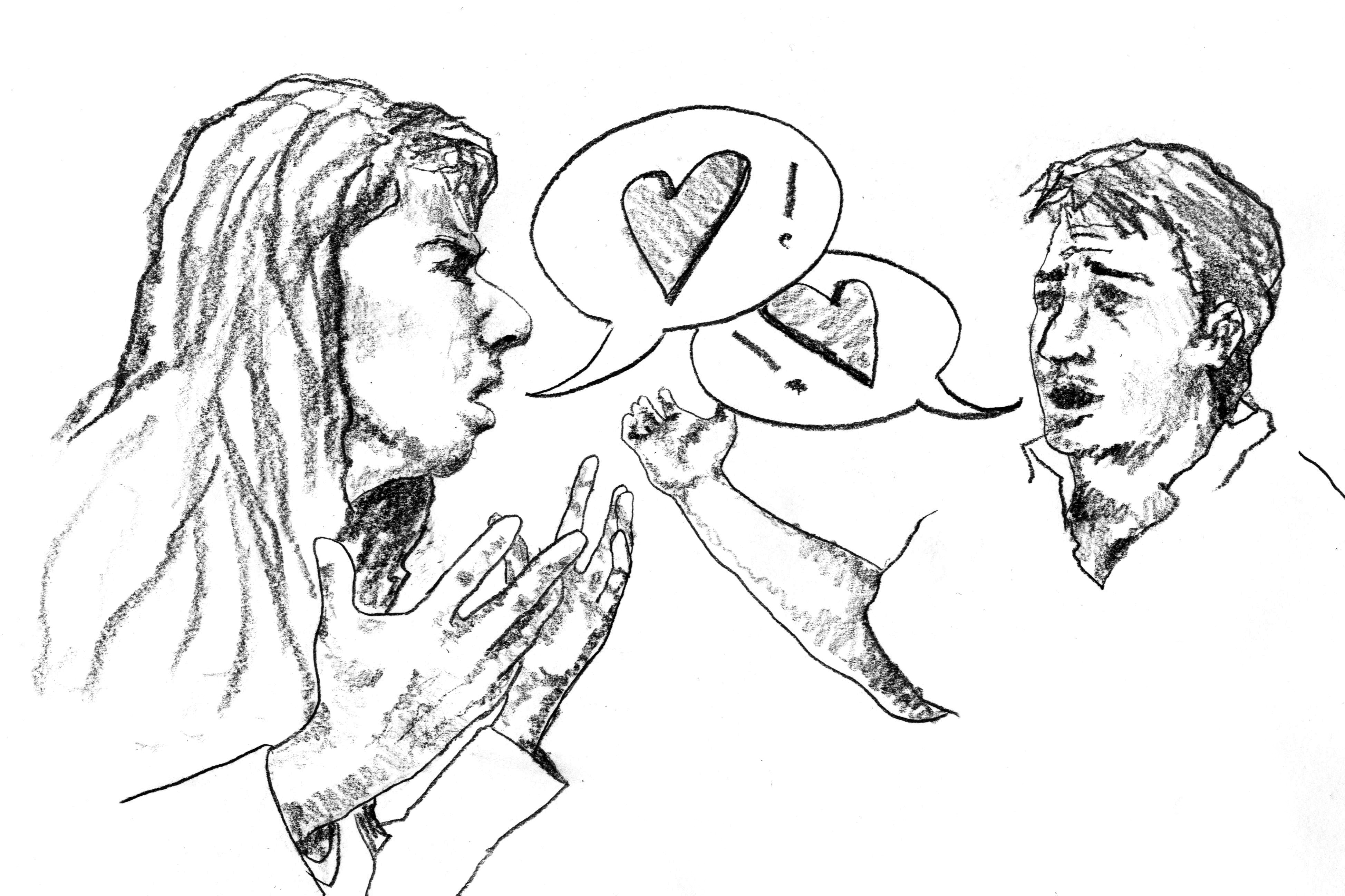
This Valentine’s Day, Yalies need to learn to love. By love, I don’t necessarily mean romantic love, or its many bastard children, but love in its broadest sense — a love for learning, and a love for one’s fellow man.
In a course I took last semester on emotional intelligence, love was the number one emotion that the hundred-odd students in the class most wanted to feel. In some senses, that’s not surprising: Most college students are living away from their families for the first time. This condition is already an aberration in the human life cycle, but its effects are exacerbated by the fact that millennials are closer to their parents than any other generation in recent American history.
Emerging research on early adulthood also suggests that 20-somethings are primarily self-focused rather than other-centric. Consequently, college dorms may lack the kind of robust, stable relationships which are integral to human flourishing. If we are to bolster well-being on campus, we need to find a way to replicate those networks of kinship in at least some of our daily interactions.
Love does not have to take the form of grandiose proclamations or extravagant gestures. It manifests itself in the little things that constitute thoughtful living. Honor your appointments. Make eye contact. Ask how that interview went. Give your suite-mate a hug. Hold the door for someone else. And reply to those damned text messages.
While philosophical conceptions of love have Judeo-Christian origins, love finds expression in almost all normative traditions across time and space. Love is particularly important at a time when resentment seems like a cultural fad. The rise of the “hater” as a trope in contemporary American culture should alert us to a deficit of kindness and civility — on online message boards and in real life.
Despite the decline of hegemonic masculinity, we still speak of love with a degree of embarrassment. We have come to associate love with irrational fanaticism; many deride patriotism — love of one’s country — as a cause of needless violence and suffering. But as Benedict Anderson, the supreme historian of nationalism, understood, love can also be a force for good, motivating altruistic behavior and other prosocial acts.
Another criticism of love is that it is inherently anti-intellectual. There are some who would have us believe that there is a sharp distinction between an intellectual space and a home. They are wrong. The whole point of a liberal education, as opposed to a technical or professional one, is that it is rooted in a humanistic ethos and animated by a concern for those around us, an idealistic belief that knowledge can be used to uplift the human condition. Argument for argument’s sake, without considering the consequences of our ideas, undermines the civic mission and ethical character of the university. A love for learning must go hand in hand with a love for one’s fellow man.
That said, we should remember that love is different from coddling. Love can sometimes be tough, as when a professor tells a student that he needs to spend more time on his work, or when a student tells her suitemate that he should probably skip that drink. The opposite of love is not hate but indifference, and a culture of permissive relativism can be just as devoid of love as one of stifling intolerance.
They say February is the longest month, and it’s not hard to see why, in the midst of midterms, problem sets, papers, applications and snow. Any modicum of passion for what we do gives way to the slow tedium of work, retrenching our intellectual curiosity. In light of this, it is tempting to pull back on our commitments, to skim those readings, to just stay in our room and watch Netflix all night.
But while there is a place for self-love, the real antidote to ennui lies in reaffirming our love for what we do, and for those around us. Only when we throw ourselves at something with abandon can romance blossom. And only when we reveal our affection for others can we heal our own vulnerabilities.
The events of the past semester have exposed deep wounds in Yale’s community. Too many Yalies feel alienated, as we have seen from controversies over racism, mental health, sexual assault and financial aid. Institutional and structural changes are pivotal to reform, but the most effective transformation might well be an affective one: love.
Jun Yan Chua is a sophomore in Saybrook College. His column runs on alternate Fridays. Contact him at junyan.chua@yale.edu .







